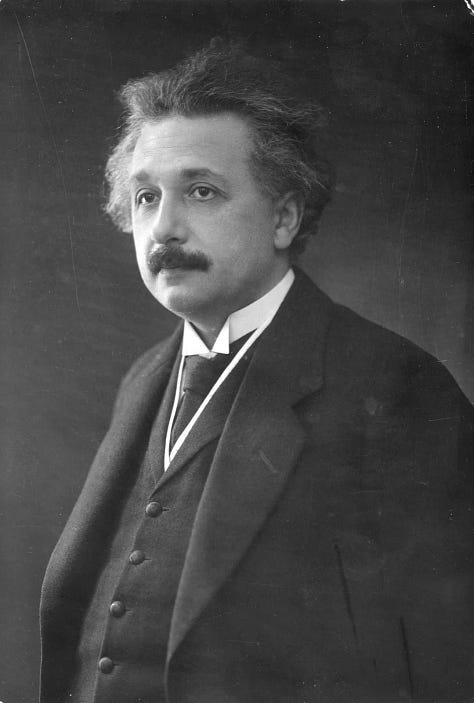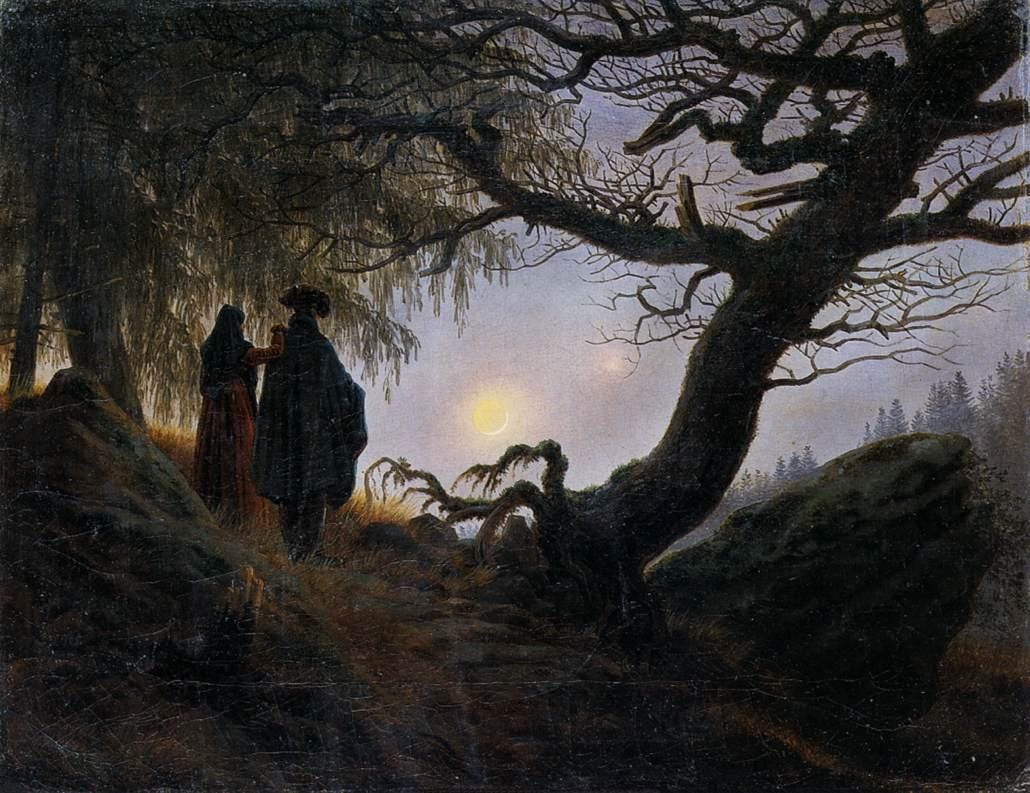Connect With Your Intuition
That "voice in your head" left the building a long time ago
The Writer’s Thoughts
The birds flock prior to an earthquake. The herds follow the same trail during each migration season.
Intuition is not a superpower. It is a signal. Another kind of intelligence.
Are you articulated to the Earth? When was the last time you were in it?
Really, in it.
Most of us are stale, placated; locked into the pre-fabricated routines, unaware of the rhythms of the world around us — even in our own homes
The movements, patterns, and details of the world around you are not fleeting abstractions. They are inputs. Necessary for survival.
Some of you carry this epigenetic memory. You can really see someone. There is a whisper in your ear and sometimes, you’re smart enough to listen to it.
But most of us are deluded and few of us are compelled by this strong internal force. Society blows us like a dandelion. We are unable to move our own feet at our own will.
Worse, modern narcissists masquerade as a reincarnated Delphic oracle. A few beers are all it takes. We all know what they sound like. Masters of time and space.
But the table catches each other’s eyes. They know that nature would SWALLOW THEM. Yet the “oracle” rambles on, blissfully unaware — disconnected from their intuition — as the table waits to speak.
We must take a view from above.
Our ancestors have placed us at the end of a great chain. And yet, we are different people altogether.
Our utility is blunted. Our daily life is dictated. A table read for the next sequel.
We must connect with our ability to make our own decisions — to feel what decisions are right. To avoid the trap of overanalyzing. To be able to intuit that something is out of place. To be able to know when a line has been crossed and when we must act to ensure our survival.
But to do so, we need to go where our intuition is active, naked, and justified. We need to find this ancient energy again. Make the time. Go to the woods to the beach to the desert or to the end of a very long road and sit in silence.
Leave your phone in the glove compartment and take no pictures.
Food For Thought



Henry David Thoreau |"Intuition is the very force or activity of the soul in its experience through whatever has been the experience of the soul itself."
Henry David Thoreau was a 19th-century American author, naturalist, and philosopher who is most known for his book "Walden," which chronicles his two-year stay in a cabin in the woods near Walden Pond. Thoreau's work is heavily related to the concept of intuition, as he believed that it was essential to understanding oneselfIn "Walden," Thoreau writes, "We must learn to reawaken and keep ourselves awake, not by mechanical aid, but by an infinite expectation of the dawn." He is urging readers to awaken their intuition, to become aware of the natural rhythms of the world, and to live deliberately. Thoreau believes that intuition is a powerful force that is essential to understanding the world and ourselves. He writes, "In the morning I bathe my intellect in the stupendous and cosmogonal philosophy of the Bhagavad Gita... in comparison with which our modern world and its literature seems puny and trivial."
Thoreau also uses specific examples from his own experiences to support his ideas about intuition. For example, in his essay "Walking," he writes about the importance of being present in the moment and aware of one's surroundings. He says, "I have met with but one or two persons in the course of my life who understood the art of Walking, that is, of taking walks... Who has not a dozen times... found himself... miles from home, but well on his way to other places?"
Albert Einstein | "The intuitive mind is a sacred gift and the rational mind is a faithful servant. We have created a society that honors the servant and has forgotten the gift."
Albert Einstein, the famed physicist and Nobel laureate, was known for his groundbreaking theories of relativity and his contributions to the development of nuclear energy. However, Einstein's work also had a deep connection to the concept of intuition.In his book "The World As I See It," Einstein wrote about his belief in the importance of intuition in scientific discovery. He said, "I believe in intuition and inspiration...At times I feel certain I am right while not knowing the reason."
One of Einstein's most famous thought experiments, the "Einstein-Podolsky-Rosen paradox," was based on the idea that quantum mechanics required a new type of intuition, one that challenged classical physics. He famously said, "God does not play dice with the universe," referring to his belief that the universe was orderly and predictable.
Agatha Christie | "Instinct is a marvelous thing. It can neither be explained nor ignored."
Agatha Christie was a prolific writer who is widely regarded as one of the most successful authors of all time. Her work often explores themes of intuition and psychology, and her characters frequently use their instincts to solve mysteries. In her novel, "The Murder of Roger Ackroyd," for example, the main character, Hercule Poirot, relies on his intuition to uncover the killer. He notes that "there are times when the little grey cells refuse to work, when the machine jams, and then one must rely on one's instincts."In another of Christie's novels, "Death on the Nile," the main character, detective Hercule Poirot, reflects on the power of intuition: "Instinct is a marvelous thing. It can neither be explained nor ignored." This passage highlights the idea that intuition is a powerful tool that can lead to important insights and revelations.
Christie's writing style is both poetic and reflective, often employing metaphors and imagery to convey her message. For example, in "The Mysterious Affair at Styles," the character Hastings reflects on the importance of listening to one's intuition: "It's like a continual tapping in one's skull, and I don't know how to stop it. You know the feeling, I suppose, when you're waiting for something and every minute seems like an hour." This passage conveys the sense of urgency and intensity that often accompanies intuitive insights.
The Gallery
"The Garden of Earthly Delights" by Hieronymus Bosch (Early 16th Century)
"The Garden of Earthly Delights" is a triptych painting created by Hieronymus Bosch in the early 16th century. The painting depicts a complex and intricate landscape filled with surreal and fantastical elements that challenge the viewer's perception of reality. At the same time, the painting highlights the importance of intuition in navigating the complexities of human desire and temptation.
The central panel of the painting depicts a lush and vibrant garden filled with strange and exotic creatures, representing the myriad of human desires and temptations. The figures in the painting appear to be lost in their own desires, suggesting the dangers of giving in to our baser instincts. The left panel of the triptych shows a paradisiacal landscape, representing the state of innocence and purity that precedes the fall into temptation. The right panel, however, depicts the consequences of giving in to desire, with figures being tormented and punished for their sins.
Bosch's painting is a vivid reminder of the power of human intuition in navigating the complexities of life and posits that we must be aware of our desires and temptations and exercise restraint in order to avoid falling into a cycle of hedonism and sin. The painting's rich and detailed imagery invites the viewer to explore the complexities of human desire and to reflect on the importance of intuition in guiding us toward a life of balance and harmony.







